Fifth Kandy Intensive Buddhist English Course
Teachers' Reports
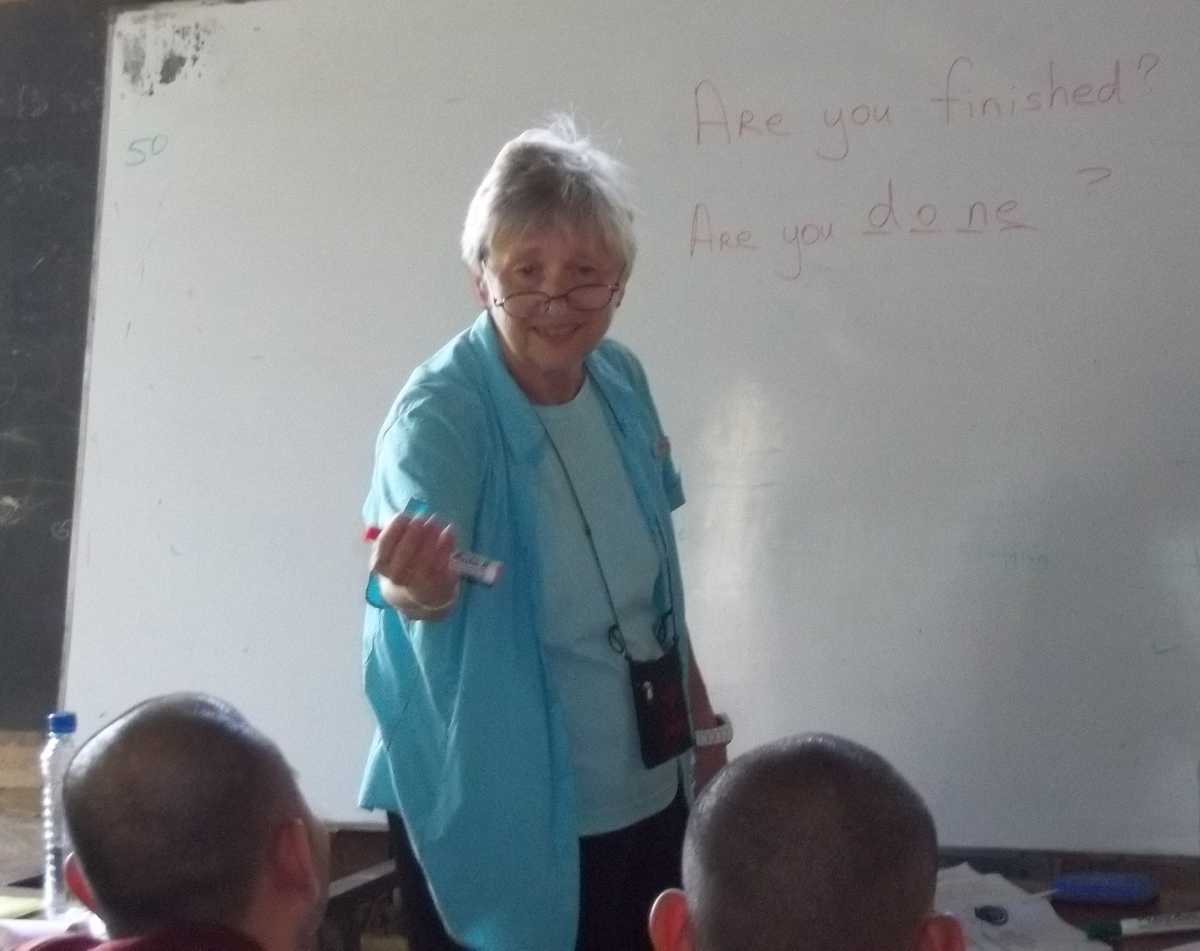 The 2014 Intensive English Course was a perfect start to a new year! It was a great learning experience for everyone. The students studied hard (even doing worksheets during the breaks), asked questions, and graciously helped each other. The group diversity (Burmese, Chinese, Korean, and Sri Lankan) added to the richness of the discussions. Ven. Vilasagga made sure that everything was organized--the classrooms, the schedule, and the activities. For me, as a teacher, it was very gratifying to have such motivated learners, and I enjoyed the opportunity to teach, as well as to learn more about Buddhism and to experience loving-kindness.
The 2014 Intensive English Course was a perfect start to a new year! It was a great learning experience for everyone. The students studied hard (even doing worksheets during the breaks), asked questions, and graciously helped each other. The group diversity (Burmese, Chinese, Korean, and Sri Lankan) added to the richness of the discussions. Ven. Vilasagga made sure that everything was organized--the classrooms, the schedule, and the activities. For me, as a teacher, it was very gratifying to have such motivated learners, and I enjoyed the opportunity to teach, as well as to learn more about Buddhism and to experience loving-kindness. Linda
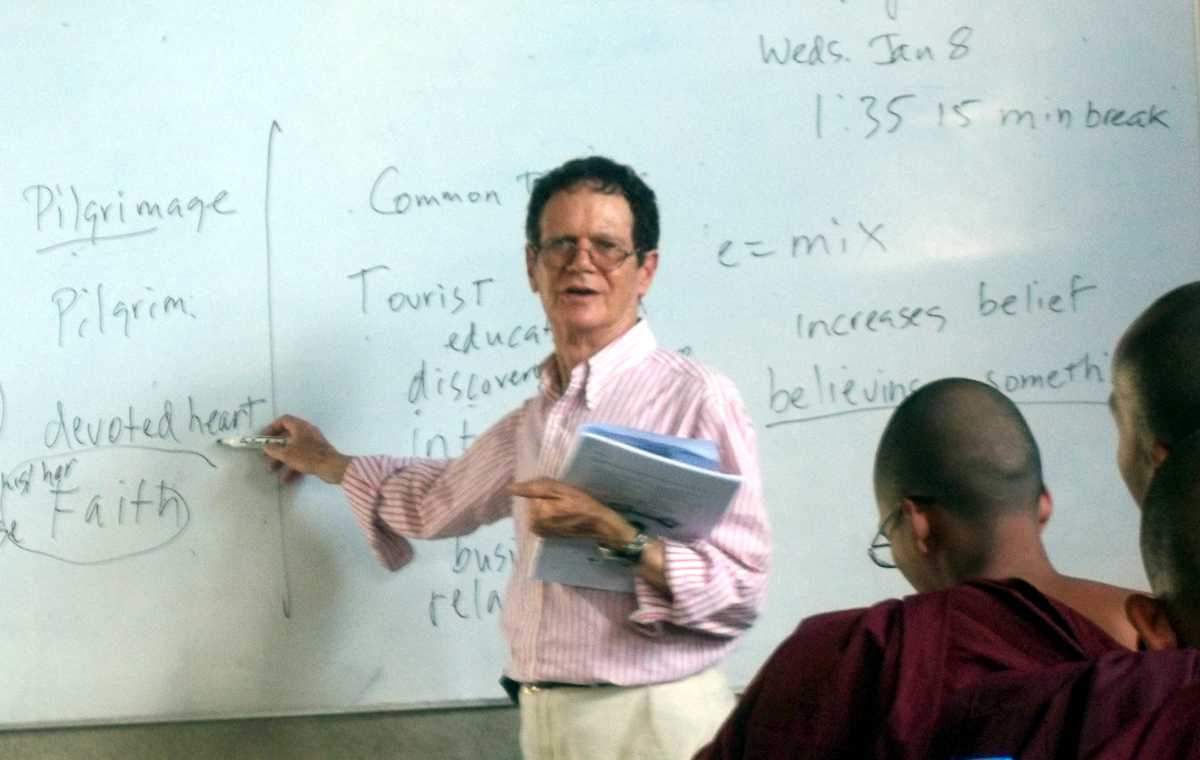 Teaching at the English intensive was a wonderful and rewarding experience, and I was happy to have had another opportunity to return to Kandy and to serve the sangha in this way. The monastic students were very enthusiastic and a pleasure to teach. Everything was extremely well organized, and I found teaching English through the Dharma to be very inspirational. The Merit ESL text has been so thoughtfully written that I would like to use it to teach monks here in Nepal.
Teaching at the English intensive was a wonderful and rewarding experience, and I was happy to have had another opportunity to return to Kandy and to serve the sangha in this way. The monastic students were very enthusiastic and a pleasure to teach. Everything was extremely well organized, and I found teaching English through the Dharma to be very inspirational. The Merit ESL text has been so thoughtfully written that I would like to use it to teach monks here in Nepal.I am looking forward to joining again next year, and I hope that my aspiration will be fulfilled. Kandy is such a pleasant and Dharmic environment, and I must thank Ken and Visakha again for looking after me and kindly taking care of all my physical needs.
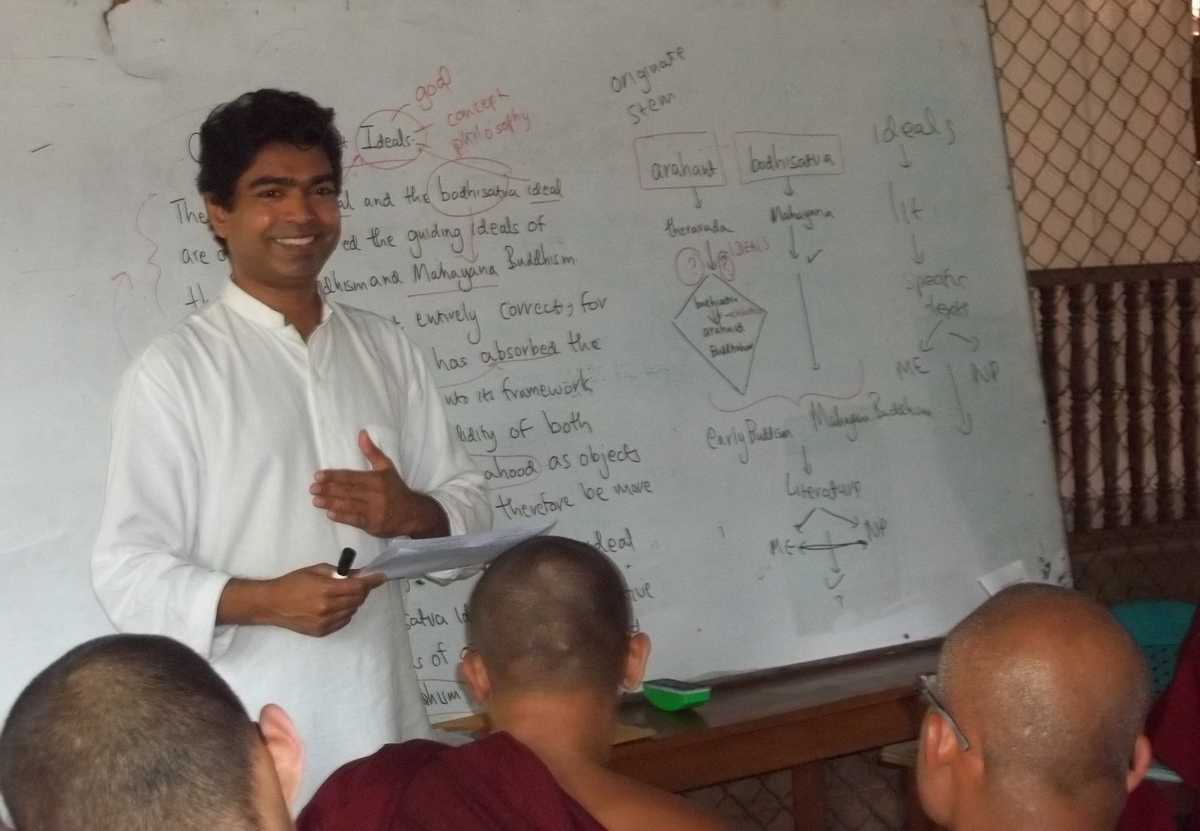 Having taught at the Kandy Intensive of the Buddhist Relief Mission for 5 years, I could safely summarize the course in two words: purity and empowerment. Purity, because I always go back home with a blissful state of mind. We usually work in/or in close vicinity to temples and therefore absorb some of its pure aura; there is also the tendency to engage in meditation more often than usual. Empowerment because of the knowledge we impart to the monks.
Having taught at the Kandy Intensive of the Buddhist Relief Mission for 5 years, I could safely summarize the course in two words: purity and empowerment. Purity, because I always go back home with a blissful state of mind. We usually work in/or in close vicinity to temples and therefore absorb some of its pure aura; there is also the tendency to engage in meditation more often than usual. Empowerment because of the knowledge we impart to the monks.The very first lesson of my usual 5-day Academic Writing program is the most crucial. It is the maker or breaker. I need to show the students a gap in their present knowledge. I used a Bhikkhu Bodhi essay titled, Arahants, Buddhas and Bodhisattvas (from The Bodhisattva Ideal: Essays on the Emergence of Mahayana, BPS: 2013). It was this exposed gap that gave me the go! And in no time I won over my class of Burmese, Chinese, Korean, and Sri Lankan monks. From that point onwards the rest of the lessons were full of structured writing activities, gentle negotiations, red-pen feedback all of which ended with a final examination. This time I also plunged the students into serious academic reading – with strategic coffee breaks in between.
In addition to all this, I also engaged in questionable activities like playing practical jokes on Lily and her kitchen brigade – all for the innocent purpose of pure entertainment.
A warmest thanks to Ken, Visakha, Nezumi and Lily ++ for an awesome repetition of the program. It gets better and better every year.
With Metta
Lal M+++
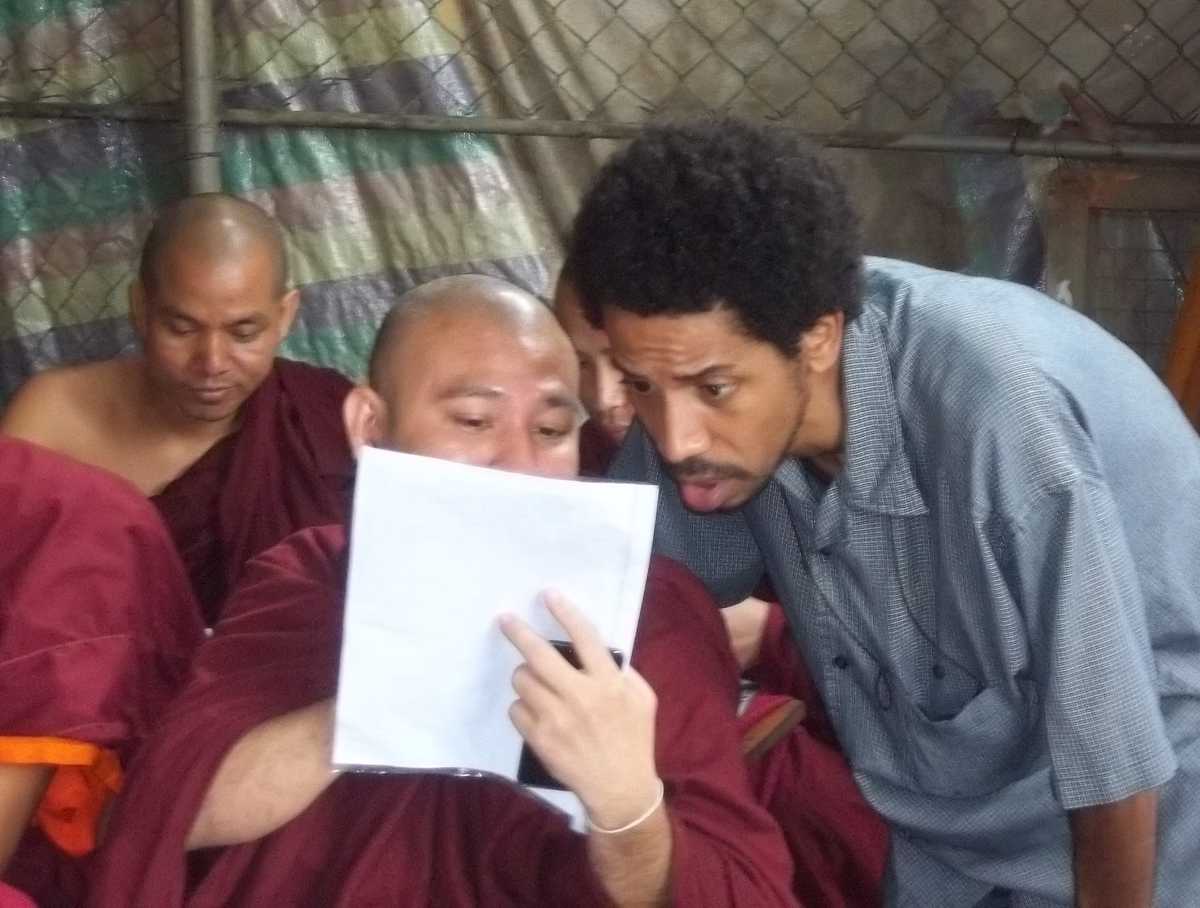 This was my second intensive—--my first in Sri Lanka, my first trip to Sri Lanka, et cetera, et cetera. Last year, I had originally intended to bring the entire family, but, the Kawasakis thought it best to wait, as it was a trip of "firsts" for everyone: their first intensive in Gaya, my first pilgrimage to India, our first time working together. But, having crossed those thresholds, I really don't thinkVisakha would've even let me come to Sri Lanka this time without them. And, Visakha, looking back, I think we all see how right you were.
This was my second intensive—--my first in Sri Lanka, my first trip to Sri Lanka, et cetera, et cetera. Last year, I had originally intended to bring the entire family, but, the Kawasakis thought it best to wait, as it was a trip of "firsts" for everyone: their first intensive in Gaya, my first pilgrimage to India, our first time working together. But, having crossed those thresholds, I really don't thinkVisakha would've even let me come to Sri Lanka this time without them. And, Visakha, looking back, I think we all see how right you were.This trip was really about family: first of all, the Kawasakis insisted the seven of us stay at their home--—wouldn't hear of a hotel; when I had to go to class, and my wife--who works online and was busy with that for most of the trip--was preoccupied, Auntie Lily nursed my sick daughter, and then my son, and then my other daughter (Thank you, again, Auntie!); my wife's Japanese, and "Ken-san" was the first han-sei (Japanese/American heritage) they'd met—--and I think that fascinated them (that and the fact that, in so many ways, Ken is like a 65-year-old child); and, Visakha played the Grandma role like she'd been doing it for years: spoiling my babies, not letting them walk near the steps, making sure they ate enough, and not letting me yell at them like I really wanted to. (They don't often get to see Dada put in his place.)
And the students! The monks--—even more than the nuns--—went crazy over them! They came to class, learned, played all the word games: Buddhist Knowledge Quest and so on. It seems like, with so much of "the world" closed to monastics, children is one area where they can sort of let themselves go, so to speak. Monks blessed and gave my children wrist ties. (They're still wearing them, Bhante!). When they came with me to class—--and mercy on me if I dared come without them--—like high school kids, they'd call out, "Over here!" tapping the seat next to them with the palms of their hands. They even escorted my six-year-old, Swiss Guard-style, to the ladies' room and stood watch out in front to make sure she wasn't "disturbed" at all. (My understanding is that things can be a bit rough for girls in Sri Lanka. But, then again, where aren't they? Right?) It was amazing to see the tender side of even some of the sternest monks.
I always seem to come to these intensives with an agenda: last year, I absolutely had to meet an Ambedkarite, I wanted to learn about Dalits. So, what happened? Not only was the intensive held smack dab in the middle of a Harrijan colony, 5 out of every 7 evenings, for 3 hours at a time, I got to sit at the feet of one of the leading monks in the movement!
This time, since we've moved to China, I've been looking for some instruction in Mahayana--—since I'm not at all too well-versed in that school's philosophy. So, lo and behold! we had four Chinese Mahayanist bhikkhus, three bhikkhunis, and one Bhante from Yunnan Province in Southern China, bordering Laos and Vietnam, where there is a remnant of Theravada still practiced! Not one for missing an opportunity like this, I threw a couple of catalytic statements at these mixed Burmese Theravadin/Chinese Mahayanist groups from time-to-time and let the discussions unfurl--—always steering them away from the natural human tendency to go, "Ours is better 'cuz, uh, it's, uh,...ours!" (Though, to be honest, that wasn't really an issue.) And, without a doubt, in those discussions, as in most others, the real stars were the bhikkhunis!
This was my first up-close contact with bhikkhunis, and it'd be quite disingenuous of me if I didn't make special mention, not only of how impressed I was and how special it was for me meeting them, but just of how special they were in and of themselves. Socially, within the eclectic Sangha we had in Sri Lanka, they were... Y'know, I've often heard of ancient cultures likening or symbolizing women to water. Well, for me, these bhikkhunis, like water, were a medium which made elements of different properties balance out, inter-permeate,... I can't find the words, maybe, but they just made otherwise disparate parties gel. And, as far as Dhamma-knowledge goes,... well, there was a Burmese woman there; and, of course, she was no bhikkhuni, she was a dasa-sila-mata. But, I know mae-chis from Thailand, and she was far beyond any mae-chi I've ever met! If she were fully ordained, without a doubt, she'd be highly, highly decorated with ecclesiastic titles. She was knowledgeable, she was quick, eager, hungry for knowledge. I don't want to open up that can of worms today, but, due in no small part to having met her, I'm dedicating myself wholeheartedly to doing whatever I can do (at this point, little more than educating myself) for the cause of bhikkhuni ordination. They don't need me as much as I need them!
I only taught a week, but--—what can I say? I mean, for how many more intensives can I say to the Kawasakis, "This experience changed my life!" before it becomes cliché? But, I guess, all is change, right? So,okay, yeah! Ken and Visakha: life-changing. Again. For me, Naoko, Tamon, Gen, Tuzumi, Gakuro, and Yae. Sadhu! Sadhu! Sadhu!
Che
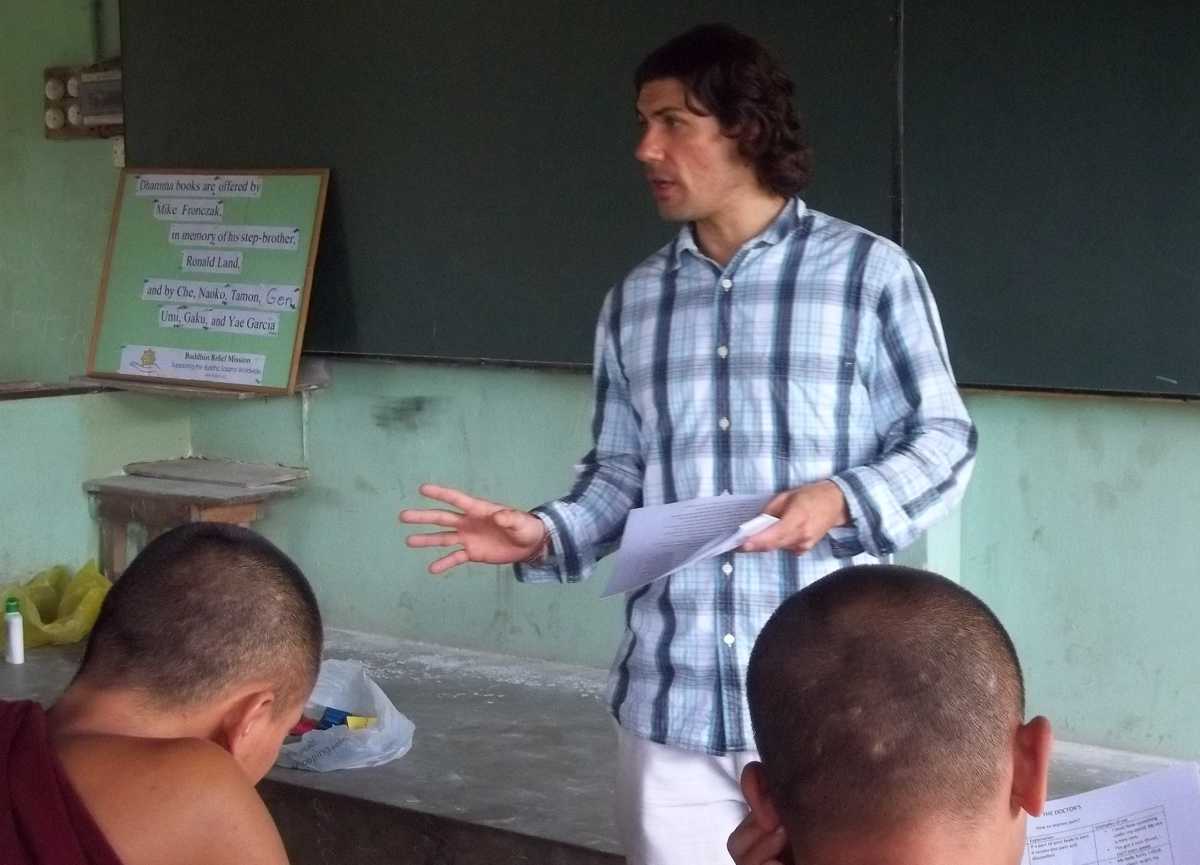 I am so grateful for the opportunity that I had to lead a class in the 2014 English Intensive Course hosted by the Buddhist Relief Mission in Kandy, Sri Lanka.
I am so grateful for the opportunity that I had to lead a class in the 2014 English Intensive Course hosted by the Buddhist Relief Mission in Kandy, Sri Lanka.I had a great time and the most memorable part of the experience was the enthusiasm and participation that the students brought to the class. Their confidence and willingness brought real joy to the classroom and made the lessons come to life.
We all learned and I can't wait for next year!"
live in joy
Michael